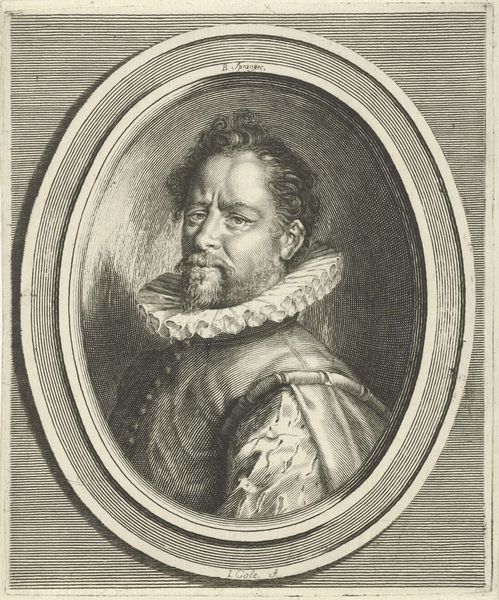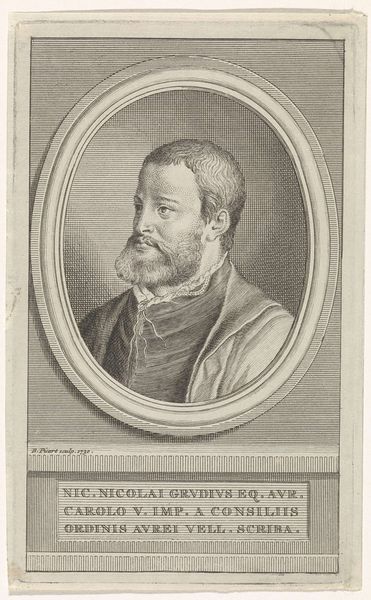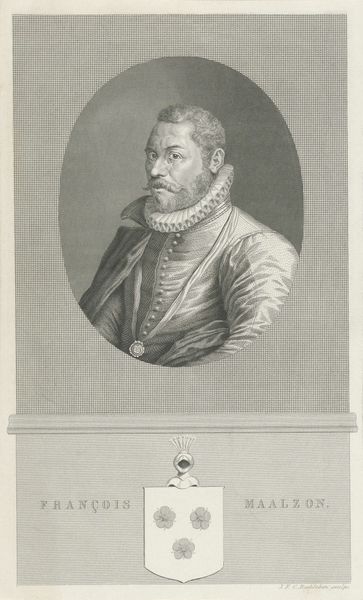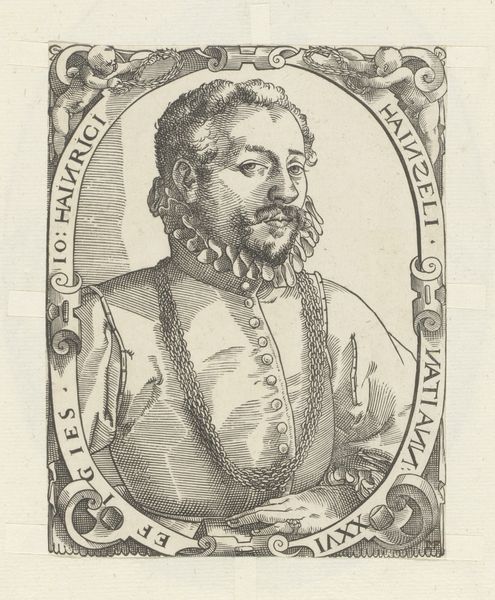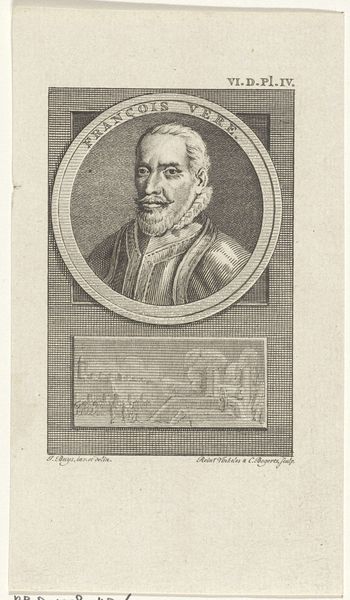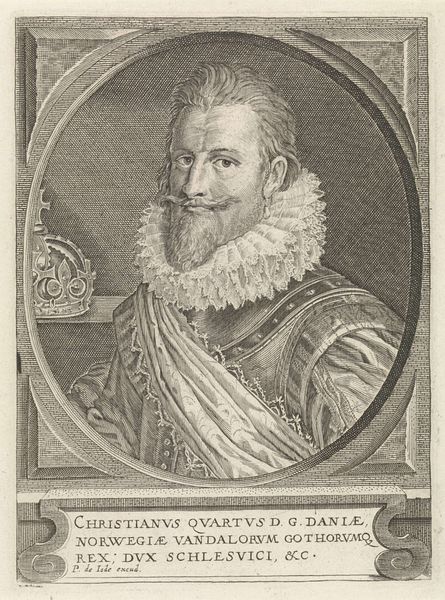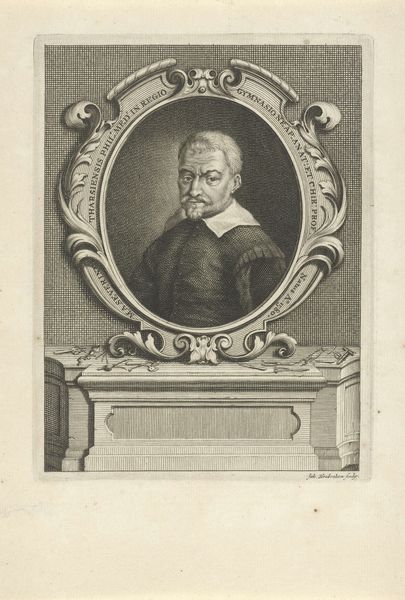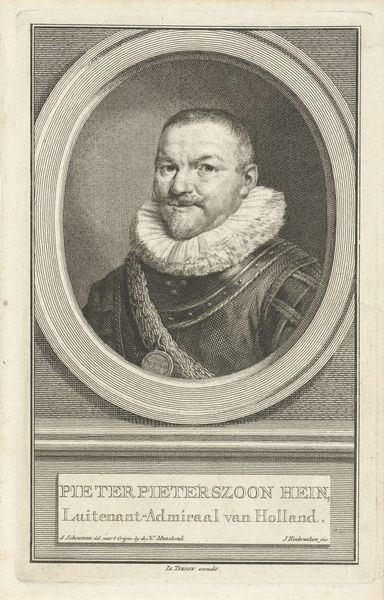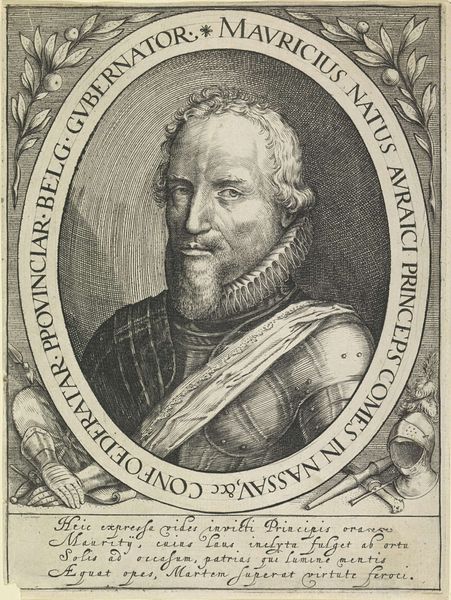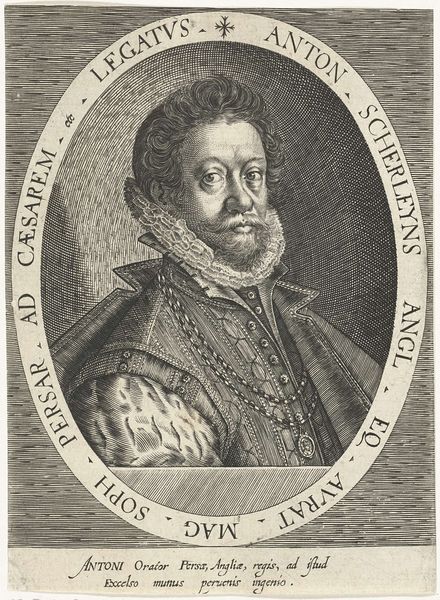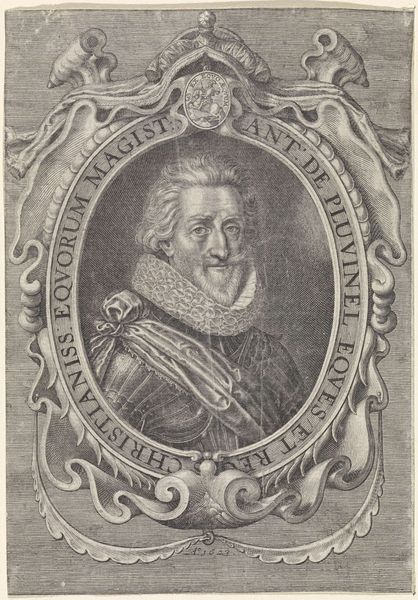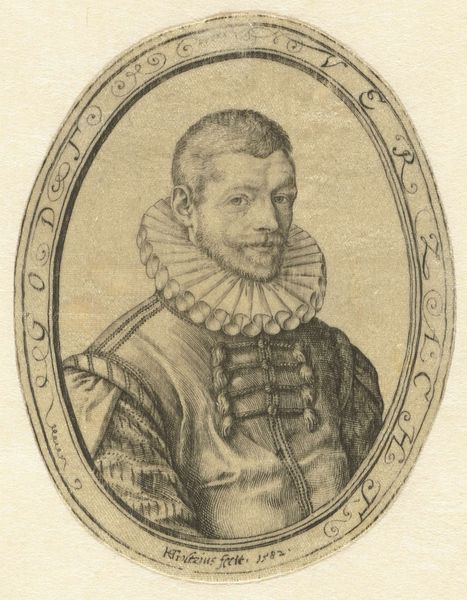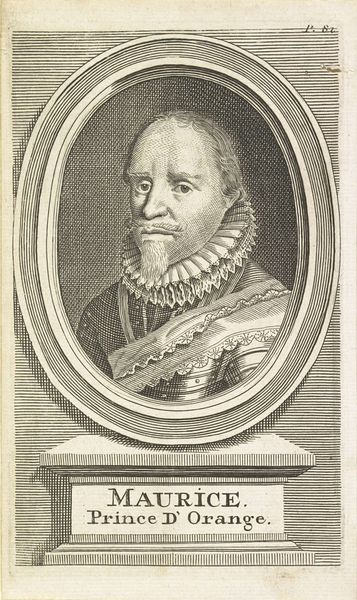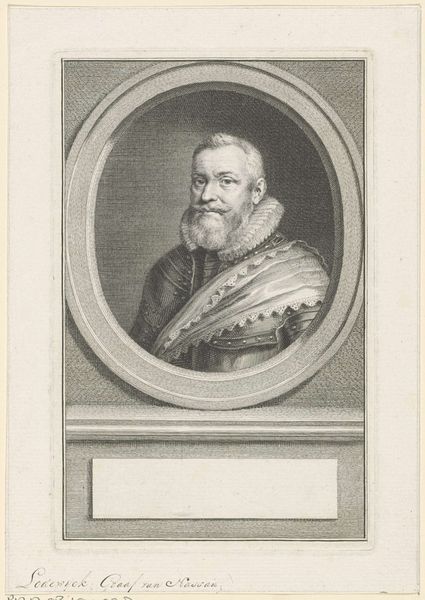
drawing, print, paper, engraving
#
portrait
#
drawing
# print
#
paper
#
pencil drawing
#
portrait drawing
#
engraving
Dimensions: height 169 mm, width 109 mm
Copyright: Rijks Museum: Open Domain
Jacob Houbraken made this portrait engraving of François Maelson in the Netherlands sometime in the first half of the 18th century. It's a formal portrait of a public figure, but we can think about it in the context of Dutch printmaking traditions. The Netherlands in the 17th and 18th centuries was a center for printmaking. Prints had a social function, and portraits of public figures were popular. Maelson was a "syndic" or magistrate of West Friesland, a province of the Netherlands, so this image commemorates his role in the local government. The artist has paid close attention to his face, clothes, and bearing, all of which tell us about his social status. It is this kind of attention to the subject's social role that makes the image so interesting. Art historians use archival sources such as town records and newspapers, as well as studies of fashion and culture, to reconstruct the social meaning of images like this one. What does it mean to memorialize a local leader?
Comments
No comments
Be the first to comment and join the conversation on the ultimate creative platform.
